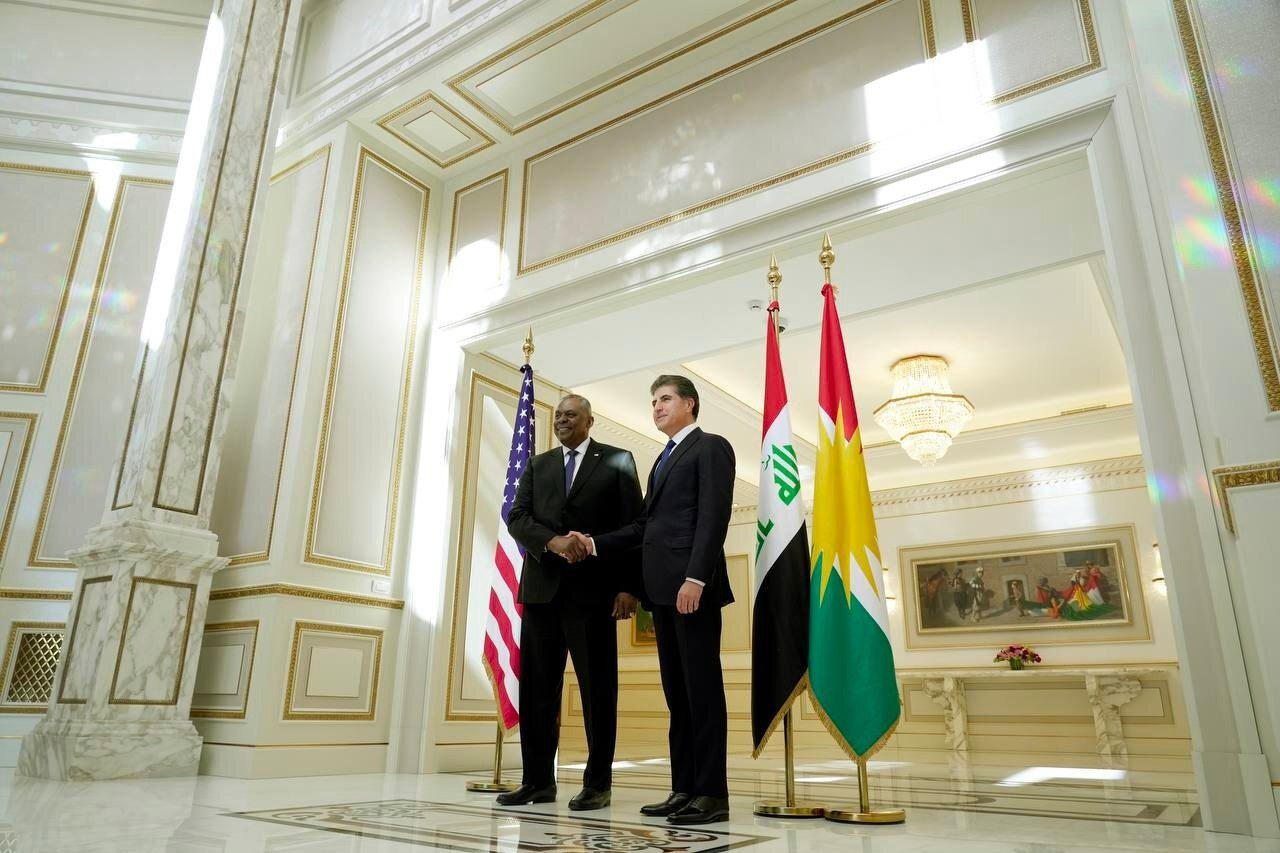Secret deal with Devil

TEHRAN – The United States has reportedly inked a secret deal with Iraqi Kurdistan to arm the autonomous region with game-changing weapons, a move that drew the ire of Iraq’s central government and raised concerns in Tehran.
On Monday, Iran demanded explanations from the Iraqi government and Iraqi Kurdistan.
Responding to a question on the secret agreement between Iraqi Kurdistan and the U.S., spokesman for the Iranian foreign ministry Nasser Kanaani said, “Based on the good neighborly relations between the governments of Iran and Iraq and also based on the security agreement between the two countries, we expect the Iraqi government to act in the same framework. Both the Iraqi government and the Kurdish regional authorities should act responsibly and adhere to maintaining the neighborly policy in relations with Iran.”
He added, “We have never trusted the U.S. government and we will never trust it because it has pursued its relations to create tension between countries. The Iraqi government will definitely clarify this issue and the regional authorities should also explain in this regard and we should see what their explanation is in this regard.”
The Iranian demand came after Iraqi media reported that the U.S. has recently signed a secret arms deal with Iraqi Kurdistan to provide the region with weapons such as air defense systems without getting the approval of Iraq’s central government.
Iraqi news website Al-Maalomah reported that the U.S. has approved the sale of advanced air defense systems to Iraqi Kurdistan in a deal signed without the involvement of Iraq’s central government, something that runs counter to international law and diplomatic norms.
Iraqi lawmaker Jassem al-Mousawi said the move contravenes international law, adding that no internal party has the right to deal directly with states away from the federal government.
“The government must intervene to stop this deal by following international diplomatic methods,” he told the news website. “The decision to arm the Kurdistan region is tantamount to interference in the country's internal affairs.”
He added, “We will work to present the file to the higher political authorities in order to come up with a position to reject the agreement between Washington and the [Kurdish] region.”
Akeel al-Taei, an Iraqi expert on military and security affairs, said the U.S.-Kurdish deal aims to enable Erbil to thwart the strikes of the enemies of the U.S. He said that the agreement has also been signed with bipartisan approval from U.S. Congress.
In addition to discontent in Iraq, the U.S. move raised concerns in Iran due to previous U.S. positions in support of Iranian Kurdish separatist groups in Iraq.
Since September last year, Iran has targeted these groups in northern Iraq several times. And Iran and Iraq have recently signed a security agreement that obligates the Iraqi federal government to prevent the activities of these groups.
The groups have been a source of contention between Iran and Iraq. “Being a refugee with a weapon shows that the groups that are stationed there are not refugees and they have terrorist natures and separatist motives. We expect the Iraqi government and the regional authorities to resolve the concerns and threats,” Kanaani said.
The U.S., however, seeks to protect them from what they call Iranian threats. U.S. Brigadier General Ernest C. Audino, a Senior Military Fellow at the Gold Institute for International Strategy, called for the provision of air defense systems to Iraqi Kurdistan and put the issue in the context of the alleged threats posed by Iran.
Audino reaffirmed that the Kurdistan region must be provided with air defense systems. “The Kurds have been great partners but right now they’re under constant threat from elements operating out of Tehran and or motivated by Tehran,” he told Kurdistan 24.
On Friday, retired U.S. Army Col. Myles B. Caggins III, a former spokesman for the U.S.-led coalition in Iraq and a current senior fellow at the New Lines Institute for Strategy and Policy, also told Kurdistan 24 that the United States is looking to protect the Kurdistan region from foreign air attacks by providing air defense systems.
The U.S. observers claimed that Washington intends to supply Erbil with defensive weapons, but they did not rule out the provision of offensive weapons, which could pose a severe threat to Iran's national security.
